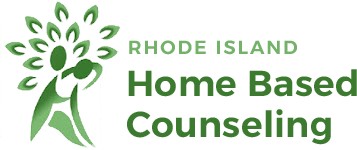Anxiety

Anxiety is a common experience for many people, especially in today’s fast-paced world. It can feel very overwhelming, making it hard to focus on anything else.
Understanding Anxiety
Anxiety is a natural response to stress or danger. It’s our body’s way of preparing us to face a threat, whether it’s real or perceived. However, when anxiety becomes chronic or overwhelming, it can interfere with our daily lives and well-being.
Mindfulness: Being Present in the Moment
Mindfulness is the practice of being fully present in the moment, without judgment, & in a calm way. It’s about paying attention to our thoughts, feelings, and bodily sensations without getting caught up in them. Mindfulness can help us break free from the cycle of anxiety by bringing our focus back to the present moment.
One simple mindfulness exercise is to focus on your breath. Find a quiet place to sit or lie down and close your eyes. Take a deep breath in through your nose, feeling your lungs fill with air, and then slowly exhale through your mouth. Notice the sensation of your breath as it enters and leaves your body. If your mind starts to wander, gently bring your attention back to your breath. Practice this exercise for a few minutes each day to help calm your mind and reduce anxiety.
Cognitive Behavioral Therapy (CBT): Changing Negative Thought Patterns
CBT is a type of therapy that focuses on changing negative thought patterns and behaviors that contribute to anxiety. By identifying and challenging distorted thoughts, CBT helps us develop more logical and helpful ways of thinking.
One CBT technique is called thought challenging. When you notice yourself feeling anxious, take a moment to examine your thoughts. Are they based on facts or assumptions? Are they helping you, or making you feel more anxious? Then, try to reframe your thoughts in a more positive and realistic way. For example, if you’re anxious about an upcoming test or other event, instead of thinking “this isn’t going to go well” reframe your thought- “I’m going to do the best I can.”
Locus of Control: Understanding What We Can Control
Locus of control refers to our beliefs about the extent to which we feel we have control and power in our lives. People with an internal locus of control believe that they have the power to influence their circumstances, while those with an external locus of control believe that external forces determine their fate.
Understanding locus of control can be empowering when dealing with anxiety. While we can’t control things that happens to or around us, we can control how we respond to it. By focusing on what we can control – our thoughts, behaviors, emotions and reactions – we can reduce feelings of helplessness and anxiety.
Putting It All Together
Combining mindfulness, CBT concepts, and understanding locus of control can be a powerful way to manage anxiety. By practicing mindfulness, challenging negative thought patterns, and focusing on what we can control, we can learn to navigate life’s challenges with greater ease and resilience.
If you’re struggling with anxiety, remember that you’re not alone, and help is available. Therapy may be able to help you! With patience, practice, and support, you can learn to overcome anxiety and find peace within yourself.
